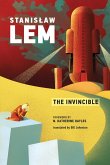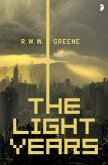Science geeks and space film fans, take a journey through the questions from your favorite movies that may continue to haunt or puzzle you. Specter of the Monolith offers a radically original critique of how humans have confronted the majesty of the vast universe-via art, media, science, pop culture, space exploration, and the greatest space films. Original and thought-provoking, the book explores questions such as:
In 200 pages, this book covers vast territory. It comes down to this: You can look at Hubble's awe-inspiring cosmic images and feel a sense of nihilism and meaninglessness. Or they can point toward an entirely new space philosophy based in the sublime, ecology, and humanity's true place in the universe of the 21st century.
In honor of the 50th anniversary of 2001, Specter of the Monolith offers a hopeful and inspiring alternative vision of human destiny in space.
- Why don't we have that sleek space hotel from 2001?
- What's the meaning of the monolith in 2001 and the tesseract in Interstellar?
- Why did we pull the plug on the Apollo program, precisely as NASA provided humanity its first and only chance to unite in celebration of human achievement?
- How do we find human meaning in the vast universe? Or are we meaningless cosmic specks, as suggested by the Hubble Deep Field images?
- Why is Michael Jackson the most popular moonwalker on Earth?
- What do Ziggy Stardust and The Six Million Dollar Man tell us about 45 years of "post-Apollo culture"?
- What are the new Star Trek and Star Wars films really saying about our future in space? What about Gravity, The Martian, and Planet of the Apes?
- Should Mars be strip-mined or terraformed, as envisioned by Elon Musk? Or protected as a Celestial Wilderness Area?
In 200 pages, this book covers vast territory. It comes down to this: You can look at Hubble's awe-inspiring cosmic images and feel a sense of nihilism and meaninglessness. Or they can point toward an entirely new space philosophy based in the sublime, ecology, and humanity's true place in the universe of the 21st century.
In honor of the 50th anniversary of 2001, Specter of the Monolith offers a hopeful and inspiring alternative vision of human destiny in space.
Dieser Download kann aus rechtlichen Gründen nur mit Rechnungsadresse in A, D ausgeliefert werden.









